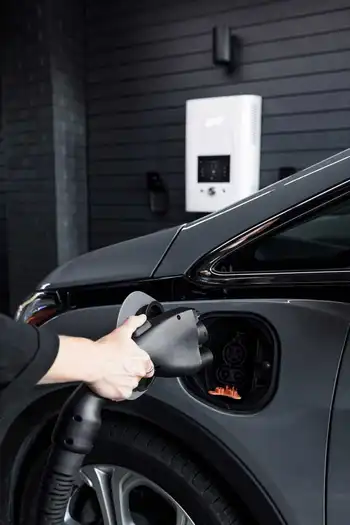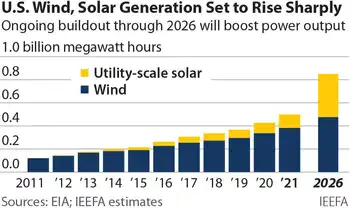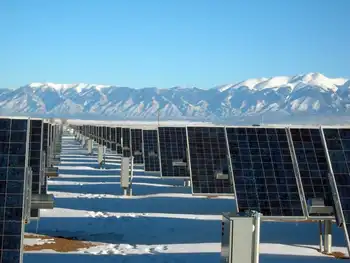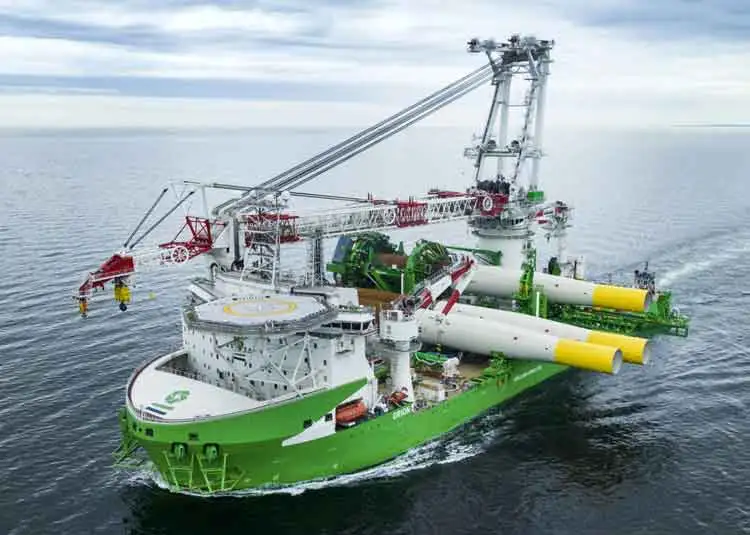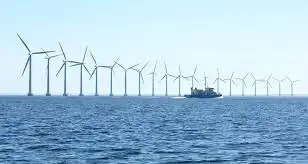Inflation Reduction Act Energy Credits help households electrify with tax credits and rebates for heat pumps, EVs, rooftop solar, battery storage, and efficiency upgrades, cutting utility bills, reducing carbon emissions, and accelerating home electrification nationwide.
Key Points
Federal incentives offering tax credits and rebates for heat pumps, EVs, solar, and efficiency to cut emissions.
✅ 30% rooftop solar and storage credit; $2,000 annual cap for heat pumps
✅ Up to $7,500 EV tax credit; price, income, and assembly rules apply
✅ Low-income rebates and discounts available via states starting mid-2023
Earlier this year, Congress passed the biggest climate bill in history — cloaked under the name the “Inflation Reduction Act,” a historic climate deal by any measure.
Starting in the new year, the bill will offer households thousands of dollars to transition over from fossil-fuel burning heaters, stoves and cars to cleaner versions as renewable electricity accelerates. On Jan. 1, middle-income households will be able to access over a half-dozen tax credits for electric stoves, cars, rooftop solar and more. And starting sometime in mid-2023, lower-income households will be able to get upfront discounts on some of those same appliances — without having to wait to file their taxes to get the cash back. This handy online tool shows what you might be eligible for, depending on your Zip code and income.
But which credits should Americans focus on — and which are best for the climate? Here’s a guide to the top climate-friendly benefits of the Inflation Reduction Act, and how to access them.
Heat pumps — the best choice for decarbonizing at home
Tax credit available on Jan. 1: 30 percent of the cost, up to $2,000
Income limit: None
Ah, heat pumps — one of the most popular technologies of the transition to clean energy and to net-zero electricity systems. “Heat pump” is a bit of a misnomer for these machines, which are more like super-efficient combo air conditioning and heating systems. These appliances run on electricity and move heat, instead of creating it, and so can be three to five times more efficient than traditional gas or electrical resistance heaters.
“For a lot of people, a heat pump is going to be their biggest personal impact,” said Sage Briscoe, the federal senior policy manager at Rewiring America, a clean-energy think tank. (Heat pumps have become so iconic that Rewiring America even has a heat pump mascot.)
Heat pumps can have enormous cost and carbon savings. According to one analysis using data from the National Renewable Energy Laboratory, switching to a heat pump can save homeowners anywhere from $100 to $1,200 per year on heating bills and prevent anywhere from 1 to 8 metric tons of carbon dioxide emissions per year. For comparison, going vegan for an entire year saves about 1 metric ton of CO2 emissions.
But many consumers encounter obstacles when switching over to heat pumps. In some areas, it can be difficult to find a contractor trained and willing to install them; some homeowners report that contractors share misinformation about heat pumps, including that they don’t work in cold climates. (Modern heat pumps do work in cold climates, and can heat a home even when outdoor temperatures are down to minus-31 degrees Fahrenheit.) Briscoe recommends that homeowners look for skilled contractors who know about heat pumps and do advance research to figure out which models might work best for their home.
Electric vehicles — top choice for cutting car emissions
Tax credit available on Jan. 1: Up to $7,500 depending on the make and model of the car
Income limit: <$150,000 for single filers; <$300,000 for joint filers
If you are like the millions of Americans who don’t live in a community with ample public transit, the best way to decarbonize your transport, as New Zealand's electricity transition shows, is switching to an electric car. But electric cars can be prohibitively expensive for many Americans.
Starting Jan. 1, a new EV tax credit will offer consumers up to $7,500 off the purchase of an electric vehicle. For the first few months, Americans will get somewhere between $3,751 and $7,500 off their purchase of an EV, depending on the size of the battery in the car.
There are limitations, per the new law. The vehicles will also have to be assembled in North America, where Canada's electricity progress is notable, and cars that cost more than $55,000 aren’t eligible, nor are vans or trucks that cost more than $80,000. This week, the Internal Revenue Service provided a list of vehicles that are expected to meet the criteria starting Jan. 1.
Beginning about March, however, that $7,500 credit will be split into two parts: Consumers can get a $3,750 credit if the vehicle has a battery containing at least 40 percent critical minerals from the United States (or a country that the United States has a free-trade agreement with) and another $3,750 credit if at least 50 percent of the battery’s components were assembled and manufactured in North America. Those rules haven’t been finalized yet, so the tax credit starting on Jan. 1 is a stopgap measure until the White House has ironed out the final version.
Joe Britton, the executive director of the EV industry group Zeta, said that means there will likely be a wider group of vehicles eligible for the full tax credit in January and February than there will be later in 2023. Because of this, he recommended that potential EV owners act fast in 2023.
“I would be buying a car in the first quarter,” he said.
Rooftop solar — the best choice for generating clean energy
Tax credit available now: 30 percent of the cost of installation, no cap
Income limit: None
For those who want to generate their own clean energy, there is always rooftop solar panels. This tax credit has actually been available since the Inflation Reduction Act was signed into law in August 2022. It offers a tax credit equal to 30 percent of the cost of installing rooftop solar, with no cap. According to Rewiring America, the average 6 kilowatt solar installation costs about $19,000, making the average solar tax credit about $5,700. (The Inflation Reduction Act also includes a 30 percent tax credit for homeowners that need to upgrade their electricity panel for rooftop solar, and a 30 percent tax credit for installing battery storage to support the shift toward carbon-free electricity solutions.)
Solar panels can save homeowners tens of thousands of dollars in utility bills as extreme heat boosts electricity bills and, when combined with battery storage, can also provide a power backup in the case of a blackout or other disaster. For someone trying to move their entire home away from fossil fuels, solar panels become even more enticing: Switch everything over to electricity, and then make the electricity super cheap with the help from the sun.
For people who don’t own their own homes, there are other options as well. Renters can subscribe to a community solar project to lower their electricity bills and get indirect benefits from the tax credits.
Tips, tricks and words of caution
There are many other credits also coming out in 2023: for EV chargers (up to $1,000), a boon for expanding carbon-free electricity across the grid, heat pump water heaters (up to $2,000), and even cash for sealing up the doors and windows of your home (up to $1,200).
The most important thing to know, Briscoe said, is whether you qualify for the upfront discounts for low- and moderate-income Americans — which won’t be available until later in 2023 — or the tax credits, which will be available Jan. 1. (Try this tool.) If going the tax credit route, it’s better to spread the upgrades out across multiple years, since there is an annual limit on how many of the credits you can claim in a given year. And, she warned, it is not always going to be easy: It can be hard to find the right installers and the right information for how to make use of all the available government resources.
Related News
